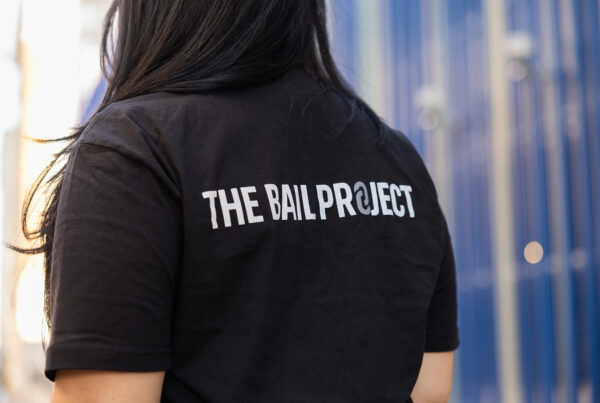Press Contact: Devin McMahon, Manager of Communications
FOR IMMEDIATE RELEASE:
AUSTIN, TX – As the Texas Legislature adjourns its 2025 session, The Bail Project recognizes a pivotal – yet mixed – moment for pretrial justice. Lawmakers passed an improved version of Senate Joint Resolution 5 (SJR 5), a proposed constitutional amendment that expands the state’s pretrial detention authority but includes historic due process safeguards. At the same time, the House rejected Senate Joint Resolution 1 (SJR 1) and Senate Joint Resolution 87 (SJR 87), two of this session’s most dangerous bail-related proposals. However, the passage of Senate Bill 9 (SB 9) marks a troubling expansion of wealth-based detention practices.
Nicole Zayas Manzano, Deputy Director of Policy at The Bail Project, issued the following statement:
“The Texas legislature stepped back from the brink by passing an improved version of SJR 5 with critical due process safeguards, while rejecting two of the most dangerous pretrial proposals – SJR 1 and SJR 87. The original Senate version of SJR 5 would have gutted legal protections and unleashed a wave of unchecked pretrial incarceration. Instead, the House adopted a version that guarantees the right to counsel and requires judges to consider alternatives before jailing legally innocent people. While not without flaws, SJR 5 marks real progress toward a fairer system.
At the same time, the passage of SB 9 casts a shadow on this progress. By expanding mandatory money bail and limiting judicial discretion, SB 9 further entrenches a two-tiered justice system that punishes poverty. We condemn this setback and caution against the continued misuse of pretrial incarceration.
These outcomes were made possible by years of grassroots organizing, legal advocacy, and steadfast resistance to regressive bail proposals. We are deeply grateful to our partners and allies who helped defend civil rights and move Texas closer to pretrial justice.”
About the Legislation
- Senate Joint Resolution 5 (SJR 5) – Awaiting Voter Approval, Will be on November Ballot
This proposed constitutional amendment expands the state’s authority to detain legally innocent Texans pretrial, but includes key due process protections: the right to counsel at bail hearings, a “clear and convincing evidence” standard for detention, a requirement that judges consider reasonable conditions of release, and a distinction between “willful nonappearance” and unintentional missed court dates. However, it also mandates detention in some cases and weakens standards for assessing flight risk. SJR 5 now moves to the ballot for voter approval.
- Senate Bill 9 (SB 9) – Awaiting Governor’s Approval
SB 9 significantly expands wealth-based detention by requiring cash bail for more offenses, limiting judicial discretion, and allowing prosecutors to appeal bail decisions, delaying release for up to 20 days. It also curtails the authority of magistrates and hearing officers, increasing delays and incarceration. The Bail Project strongly opposes this bill.
- Senate Joint Resolution 1 (SJR 1) – Failed To Pass
This proposed amendment would have allowed blanket denial of bail to non-citizens charged with certain offenses – a discriminatory and unconstitutional measure. The legislature rightly rejected it.
- Senate Joint Resolution 87 (SJR 87) – Failed To Pass
This proposal would have allowed automatic denial of bail based solely on prior convictions or release on bail, disregarding flight risk and public safety. It relied on a dangerously low evidentiary standard and was defeated by the legislature.
- Senate Bill 40 (SB 40) – Awaiting Governor’s Approval
SB 40 prohibits local governments from contracting with nonprofits that use donations to pay bail, a thinly veiled attack on The Bail Project based on misinformation. A review by the Harris County Auditor’s Office debunked claims used to justify the bill’s introduction.
The Bail Project is available for comment on the full slate of bail-related legislation from this session.
Thank you for reading. The Bail Project is a 501(c)(3) nonprofit organization that is only able to provide direct services and sustain systems change work through donations from people like you. If you found value in this article, please consider supporting our work today.











